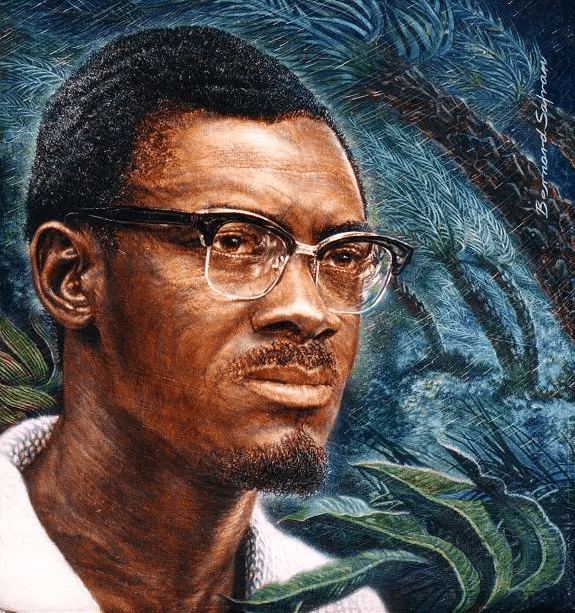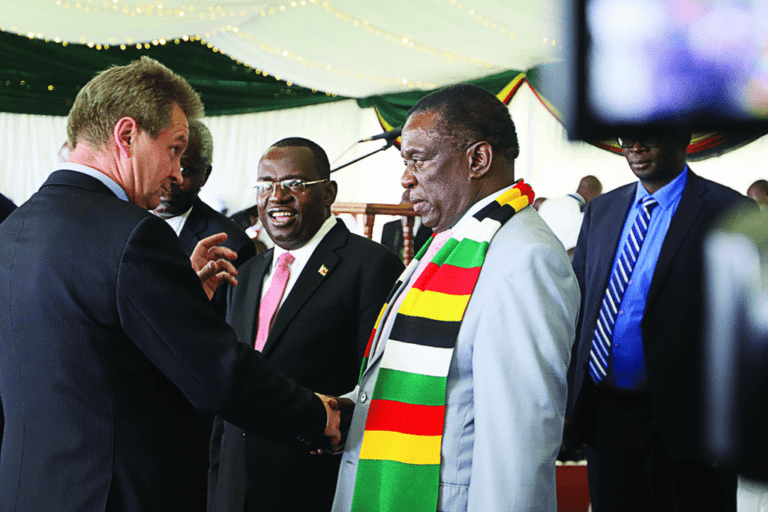The western media’s campaign in 1960 to discredit the first democratically elected prime minister of the Republic of Congo (modern-day DRC), Patrice Èmery Lumumba, make a sad ending as the burial of his golden tooth last week Thursday, 30th June shows the continued pauperisation of Africa’s heroes in both life and death.
On June 30, 1960, Lumumba’s independence speech after the country untangled the shackles of Belgian colonialism inspired great confidence in the other countries that were fighting for independence.
For him, the Congo’s victory over Belgium was a victory for Africa. His plan for the struggle for political independence and economic emancipation of the Congo was to have a far and wide-reaching impact on the whole of Africa.
“The Congo’s independence is a decisive step towards the liberation of the whole African continent. It was filled with tears, fire and blood. We are deeply proud of our struggle, because it was just and noble and indispensable in putting an end to the humiliating bondage forced upon us.
“That was our lot for the eighty years of colonial rule and our wounds are too fresh and much too painful to be forgotten,” Lumumba said in his independence speech.
While his yearning for African independence was a wholesome commitment to the sprouting movements of freedom in other countries like Malawi, Tanzania and Zambia, western media was planning to erase Lumumba’s historical contributions to Africa’s independence renaissance.
With high tensions fostered by the Cold War, many from the western bloc that was led by the North Atlantic Treaty Organisation (NATO) and the USA’s Central Intelligence Agency (CIA) described and labelled Lumumba as the “man who has the head of Lenin which has to be crushed.”
Lumumba’s boldness in preaching the socialist ideology in the face of capitalism made those who want to monopolise the world kill him.
In his book, The Assassination of Lumumba, Belgian academic Ludo De Witte highlighted that no person of African extract was expected to speak against Europeans like the way Lumumba did on independence day because they were masters of all humanity.
Lumumba’s Flame Of Consciousness Dying
For Africa, the recorded last words of Burkina Faso’s revolutionary President Thomas Sankara in 1987 when he was facing his assassins that “ideas cannot die”, speak in contradiction of the actions shown by Africans at the arrival of the continent’s hero’s golden tooth that was kept as a trophy in Belgium.
While “ideas cannot die” has been a popularised way to speak for independence and post-colonial freedom by Pan Africanists and nationalists in general, the silence of Africa on Lumumba’s demise on January 17, 1961 poses a loud betrayal and dissipating appetite of continental togetherness.
Lumumba, just like Sankara, had the vision to see Africa independent of all manacles that were impeding its growth. A reality that is difficult to envision today under the new continental leaders who, mostly, have sacrificed principle on the altar of political expediency.
Burying An Incomplete Hero As Atonement
Lumumba fought for the Congo’s independence as a complete man. The burial of his golden tooth, his only remains, on Thursday 30th June at the 62nd independence anniversary of the DRC invokes the colonial prejudices and an unfair post-colonial setting where Africa’s former colonisers show no remorse over their past misdeeds.
In November 2002, Belgian authorities who had deliberately engineered the elimination of Lumumba released a report of his murder, an inquiry that was carried out by a parliamentary commission by examining archival and testimonial evidence.
The accounts examined were porous and evidence also showed that many witnesses were not subjected to rigorous cross-examination. It was a stage-managed inquiry to allow for a “national consensus” over the matter, critics said then.
Even those who participated in Lumumba’s violent death, most have used Cold War rhetoric to their defence and have died a reluctant death. One such man is Gerard Soete, a Belgian police officer who directed Lumumba’s assassination and threw his chopped pieces into acid, later said the Congo’s independence Prime Minister “had beautiful teeth” before his death in June 2000.
Gerard’s daughter, Godelive, reportedly shared images of the tooth with Belgian media following pressure from Lumumba’s family.
Without bringing the matter to justice, DRC’s President Felix Tshisekedi, while presiding at the 62nd independence anniversary said the “Congolese people can have the honour of offering a burial to their illustrious prime minister.”
“We are ending mourning we started 61 years ago,” said President Tshisekedi.
In 2011 while speaking to The Gambia’s exiled former president, Yahya Jammeh, Lumumba’s youngest son, Roland, disclosed that his family was trying to follow the good ideals and practices of his late father towards the liberation efforts of Africa.
“We must know exactly who did it, how and why. We have the right to know and it is our duty to pass this knowledge onto the future generation. The answers to these questions should be known by all Africans,” said Roland.
Now that the answers are clear for the Lumumba family, the Congolese and African people, the burial of Lumumba’s remains without a formal apology from the Belgian political and monarchical establishment project a tainted Africa-Europe future relationship.
In a letter read at Lumumba’s funeral by one of his granddaughters, it painted a picture of an Africa that has not been shocked but expressed a silent satisfaction with the burial of Lumumba’s tooth as a historical victory for Africa by the return of his remains.
“With you, today, Africa is writing its own history,” read Lumumba’s granddaughter.
Africa’s Painful Path To Recolonisation?
In his lecture on The Past, Present and Future of Pan Africanism at the African Union (AU) headquarters in Addis Ababa last October, renowned Pan Africanist and public intellectual Professor Patrick Loch Otieno Lumumba said Africa is weak hence no one wants to pay attention to its progress, if it has any.

He said the issue of Pan Africanism and African unity is a basis for the continent to come together and avoid yesteryear pitfalls that came with colonisation.
“If you want to know how weak we are look at how we are treated. When our leaders even if they are saying something, it is something that can be ignored. The world does not listen because we are weak and disunited. So we have a weak continent because the spirit of Pan-Africanism disappeared.
“We are weak. That is the reality of our mother continent. It is because we are politically weak, economically weak and socially we are disorganised, culturally and spiritually we are confused. That is the continent in which we are in today. We unite or we perish.
“We need to use our Africanness as a building block to talk about African unity. Sometimes when we talk about Pan-Africanism and African unity, people think we are being simplistic about it. No, it is not being simplistic. It is recognising that as long as we remain the way we are, then African in the next 25 years will be recolonised. So the question that we can ask is what is the state of Pan Africanism as we speak today?” asked Prof. Lumumba.
He said the weakness of the continental body, the AU, stems from the manner it acts.
“The African Union, which is weak, says the right things and does the wrong things nine out of ten times,” he added.



















